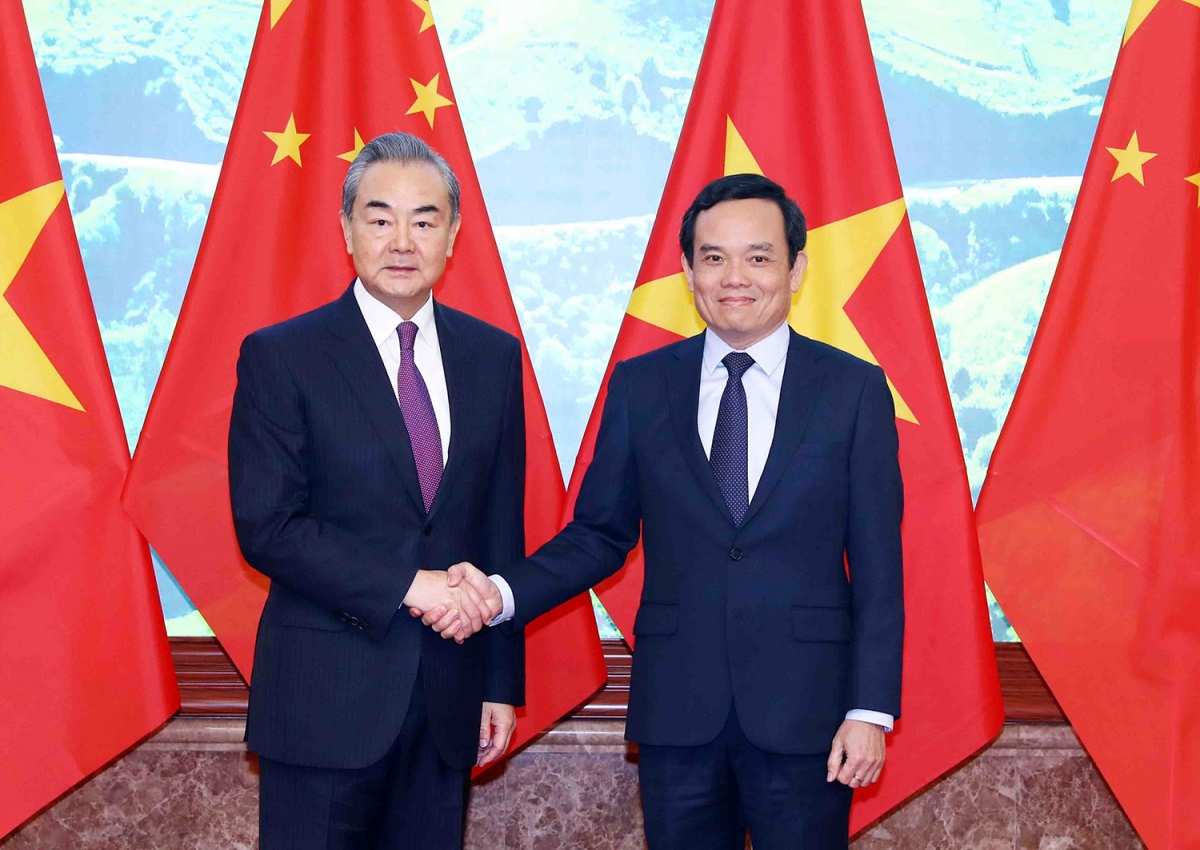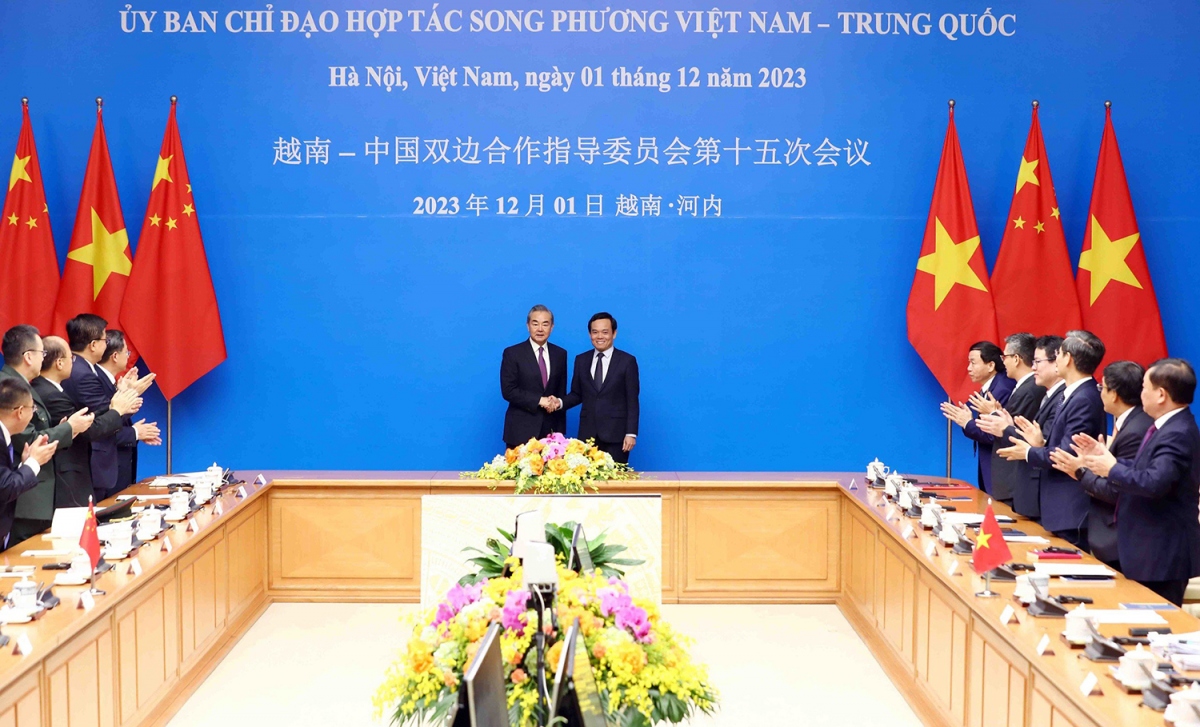Vietnam and China to develop economic, trade, investment ties steadily
VOV.VN - Vietnam and China will continue to take effective and practical measures to promote economic, trade and investment cooperation in a sustainable and healthy manner,

Both sides will work towards increasing Chinese investment in Vietnam in the fields using advanced, environmentally friendly technology. They will coordinate closely in resolving problems in incomplete projects, and accelerate the implementation of China’s non-refundable aid projects in Vietnam.
The agreement was reached during the 15th Meeting of the Vietnam – China Steering Committee for Bilateral Cooperation in Hanoi on December 1. The meeting was co-chaired by Vietnamese Deputy Prime Minister Tran Luu Quang and Chinese Foreign Minister Wang Yi.
The two sides also agreed to enhance cooperation in the fields of science and technology, the environment, transportation, agriculture, and health, and at the same time to expand cooperation in the fields of culture, education, tourism and people-to-people exchanges.
They pledged to continue to strengthen mutual support at multilateral forums.
To this end, the two sides stressed the need to increase visit exchanges and contacts, effectively deploy cooperation mechanisms, including defense, security, and law enforcement exchange mechanisms, and bring into full play the important role of their Ministries of Foreign Affairs in coordinating and promoting fields of cooperation.
Deputy PM Tran Luu Quang proposed that the two sides jointly improve customs clearance efficiency at border gates, facilitate market access for Vietnamese agricultural and aquatic products to enter China, and soon establish the Vietnam Trade Promotion Office in Haikou, Hainan province.
He asked China to create conditions for Vietnam to carry out trade and investment promotion activities and attend major trade fairs and expos in its territory.
He also proposed that the two sides speed up the connection of transport infrastructure, especially their rail links; promote tourism cooperation to pre-pandemic levels; and improve the efficiency of local cooperation mechanisms.

At the meeting, both sides held that Vietnam and China have maintained the positive development of their comprehensive strategic cooperative partnership in recent times, especially following their 14th meeting of their steering committee for bilateral cooperation in China last year.
China is Vietnam’s largest trading partner, while Vietnam is China’s largest trading partner in ASEAN and the fourth largest in the world.
China became Vietnam’s largest consumer of agricultural, forestry and fishery products in the first 10 months of 2023. Chinese investment in Vietnam also increased considerably, with nearly US$1.3 billion injected into 233 projects in the first six months of this year, making it the third largest FDI investor in the country after Singapore and Japan.
The two sides promoted cooperation in new fields such as digital economy and green growth, and completed negotiations on many important cooperation documents, including a cooperation plan to step up connection between the “Two Corridors, One Belt” framework and the “Belt and Road” Initiative.
With regard to the land border, both sides were of the same view that the situation was generally stable. The two sub-committees of the Vietnam – China Land Border Joint Committee coordinated closely in border management work, promptly discussing and resolving arising problems. The opening and upgrade of border gates brought about positive results, contributing to strengthening the land border and promoting socio-economic development in the border areas of the two countries.
The two sides frankly exchanged views on maritime issues and agreed to continue to comply with high-level common perceptions, including the agreement on basic principles guiding the settlement of Vietnam-China maritime issues, while stepping up maritime negotiation mechanisms to achieve substantive progress.
Deputy PM Tran Luu Quang proposed that the two sides adequately control and handle disagreements, respect each other’s legitimate rights and interests in accordance with international law, especially the 1982 United Nations Convention on the Law of the Sea (UNCLOS), and together with ASEAN to promote negotiations and soon reach a substantive, effective and efficient Code of Conduct in accordance with international law and UNCLOS 1982, contributing to maintaining peace and stability in the East Sea and in the whole region.


